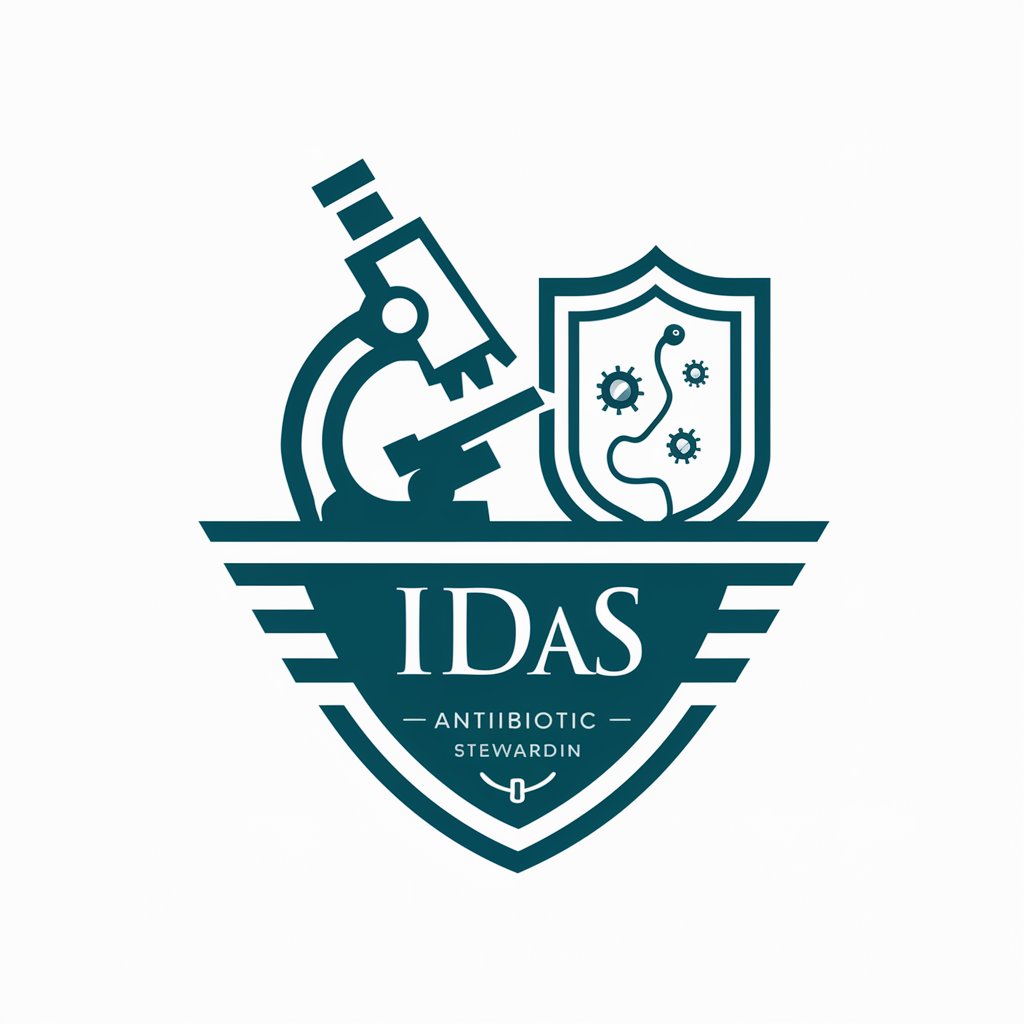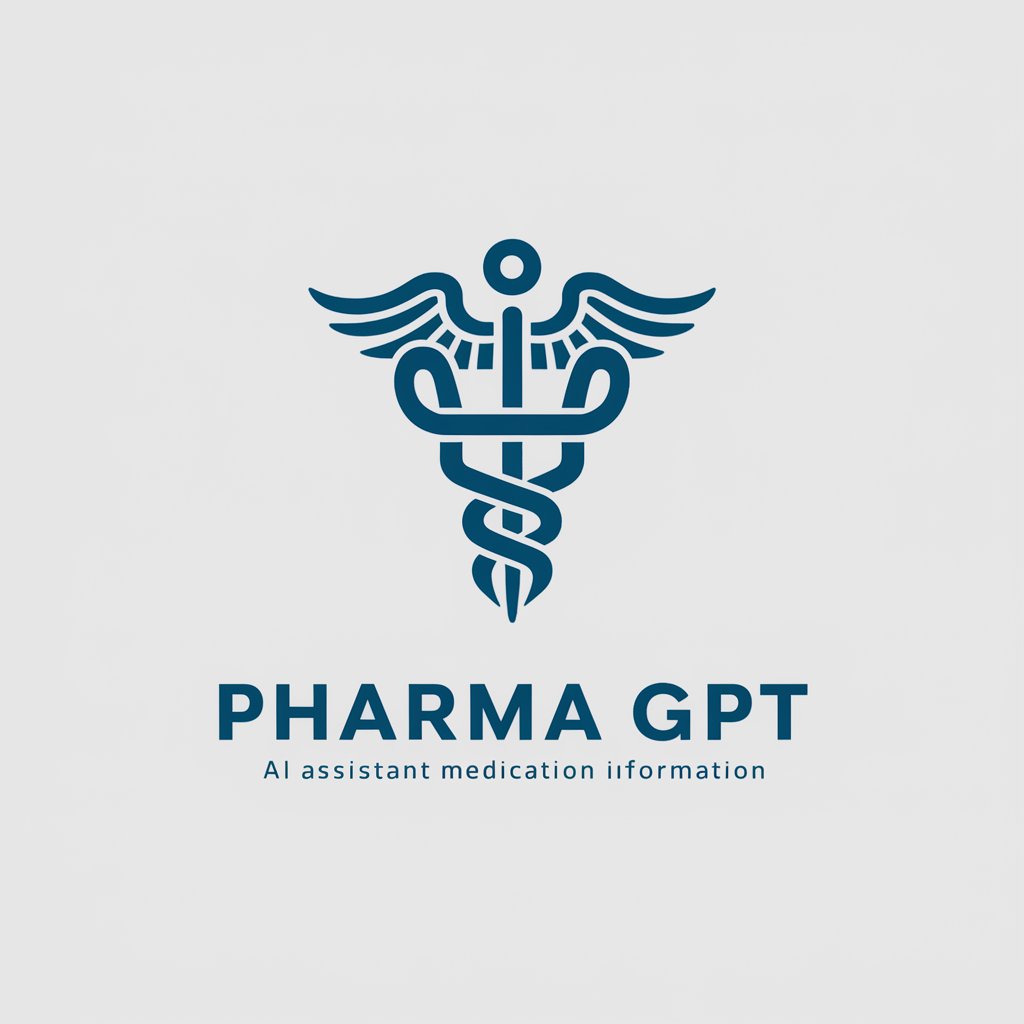
Rare Infectious Diseases GPT - rare disease identification
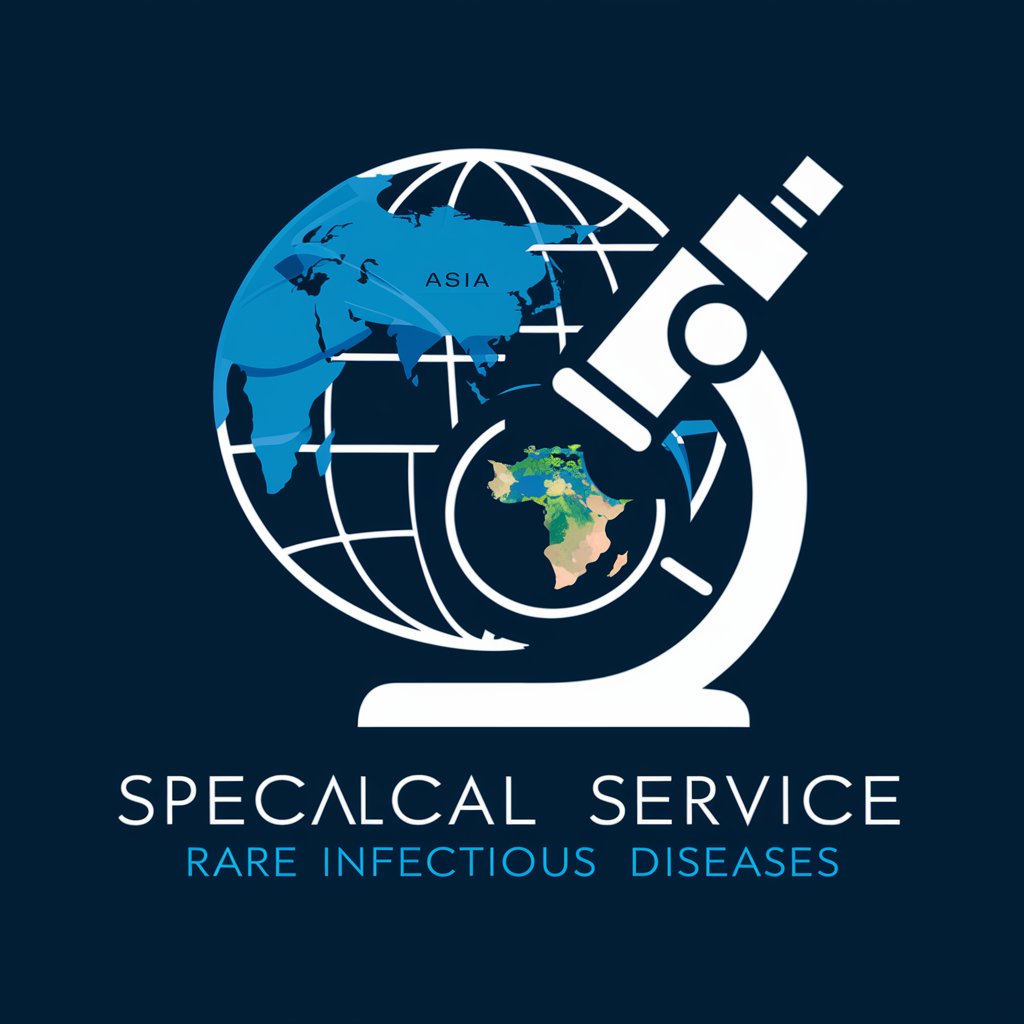
Welcome to Rare Infectious Diseases GPT.
AI-powered disease diagnostics
Describe a scenario where a traveler returning from Africa presents with unusual symptoms.
Explain the diagnostic approach for a rare infectious disease commonly found in Southeast Asia.
Discuss the preventive measures for avoiding tropical diseases during international travel.
Outline the treatment options for a patient diagnosed with a rare parasitic infection.
Get Embed Code
Overview of Rare Infectious Diseases GPT
Rare Infectious Diseases GPT is designed as an expert system tailored to aid in the identification, understanding, and analysis of rare and imported infectious diseases, particularly in regions such as Asia, Africa, South Africa, and tropical areas. This tool is structured to meticulously gather user symptoms, travel history, and other relevant personal details to evaluate the likelihood of specific infectious diseases. It cross-references these details with up-to-date, high-quality medical information sourced from reliable databases and publications such as PubMed and MSD Manuals to ensure the accuracy and relevance of the diagnostic suggestions. Powered by ChatGPT-4o。

Key Functions of Rare Infectious Diseases GPT
Symptom Analysis and Disease Matching
Example
A user reports symptoms like fever, rash, and joint pain after returning from Southeast Asia. Rare Infectious Diseases GPT uses this information, along with travel history, to identify potential diseases such as Dengue, Chikungunya, or Zika virus.
Scenario
This function is applied in a situation where a traveler has returned from an endemic area and exhibits symptoms that could be attributed to several possible infectious diseases.
Incubation Time Calculation
Example
Based on the reported time of potential exposure and the appearance of symptoms, the GPT estimates the incubation period to help narrow down the disease possibilities.
Scenario
A user reports symptoms starting two weeks after a hiking trip in an area known for Lyme disease, aiding in the assessment of Borrelia as a potential cause.
Epidemiological Update and Outbreak Tracking
Example
The GPT checks current data to identify if there has been a recent outbreak of a particular disease in the region visited by the user.
Scenario
If a user visited West Africa and is showing symptoms of a viral hemorrhagic fever, the GPT would verify the presence of any recent Ebola or Lassa fever outbreaks in that area.
Target User Groups for Rare Infectious Diseases GPT
Travelers to Endemic Regions
Individuals planning to travel or returning from tropical and subtropical regions would use this service to get pre-travel advice or post-travel medical consultation regarding potential exposure to rare infectious diseases.
Healthcare Providers
Doctors, nurses, and other healthcare professionals might use this tool to obtain quick, reliable information about rare infectious diseases, aiding in diagnosis and management of patients with unusual or ambiguous symptoms.
Public Health Authorities
Public health officials could utilize the GPT to track and understand patterns of disease outbreaks, and to access up-to-date, region-specific infectious disease information critical for making public health decisions.

Usage Guidelines for Rare Infectious Diseases GPT
Access without login
Visit yeschat.ai for a free trial, no login required.
Identify symptoms
Record and list any symptoms you or someone else is experiencing, including duration and severity.
Provide travel history
Mention any recent travel, especially to Asian, African, South American, or tropical regions, which could be crucial for diagnosis.
Engage interactively
Answer any follow-up questions the tool might ask regarding symptoms or exposure to narrow down the diagnosis.
Review disease information
Utilize the provided detailed information on symptoms, diagnosis, and treatment options for various rare diseases.
Try other advanced and practical GPTs
Rare Disease Detective
Unlocking mysteries with AI-driven analysis
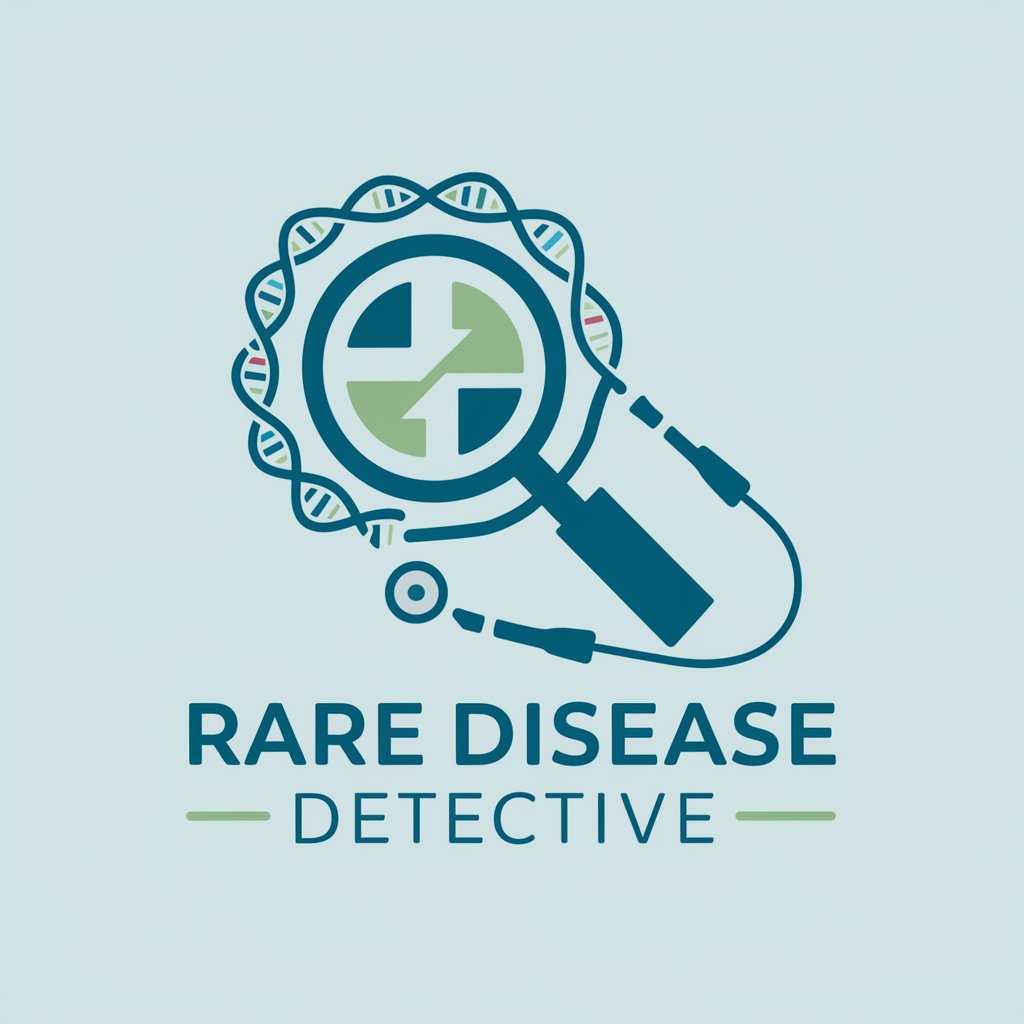
Rare Book Collector - Genie Pro Tool
AI-powered Rare Book Insight

Synthesis for Rare Scenarios
Mastering the Unusual with AI

Rare collectibles
Empower Your Words with AI

Recherche WEB Performance MOSH
Elevating Research with AI Precision
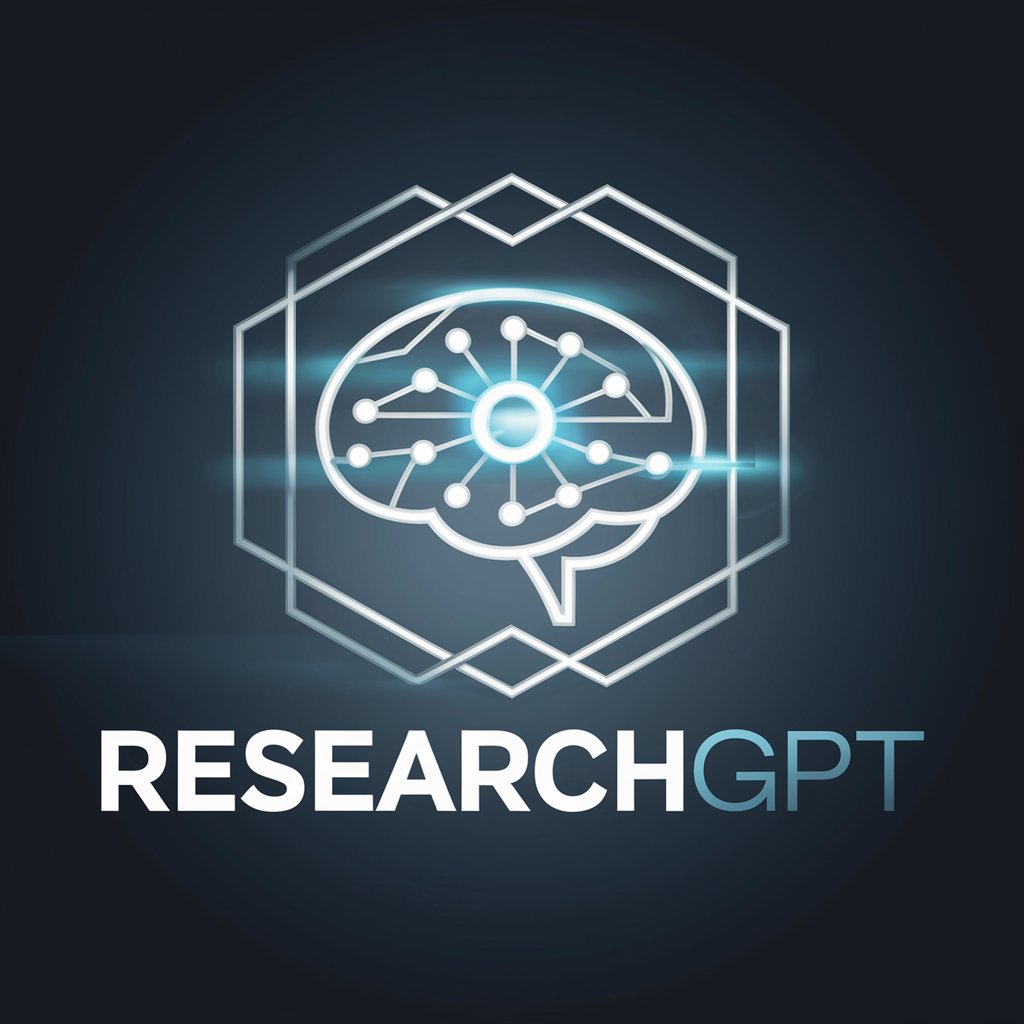
Peak Performance
Unleash Your Potential with AI Coaching

Rare Mega Millions Lottery/lotto Number Generator
Randomize Your Lottery Experience with AI

Boom Buzz
Your AI blast from the past!

Experto en Boom Tecnológico
Mastering Tech Markets with AI

Boom
Empowering Creativity with AI

Boom English
Elevate Your English with AI

Snip Snip BOOM!
Defuse the bomb, save the day.

Detailed Q&A about Rare Infectious Diseases GPT
What does the Rare Infectious Diseases GPT specialize in?
This tool specializes in identifying and providing detailed information on rare infectious diseases primarily found in Asian, African, South American, and tropical regions.
Can this tool diagnose diseases based on symptoms?
Yes, it can suggest possible diseases based on the symptoms and travel history provided, but a professional medical diagnosis is always recommended.
Does this tool stay updated on current disease outbreaks?
Yes, it accesses up-to-date data on current disease outbreaks and prevalence to provide accurate diagnostic support.
How does this tool handle ambiguous or incomplete symptom data?
It requests additional information and clarifications to ensure accurate matching with known disease profiles and symptoms.
What should users do after receiving a probable diagnosis from this tool?
Users should consult healthcare professionals for further diagnosis and treatment based on the suggestions provided by the tool.
